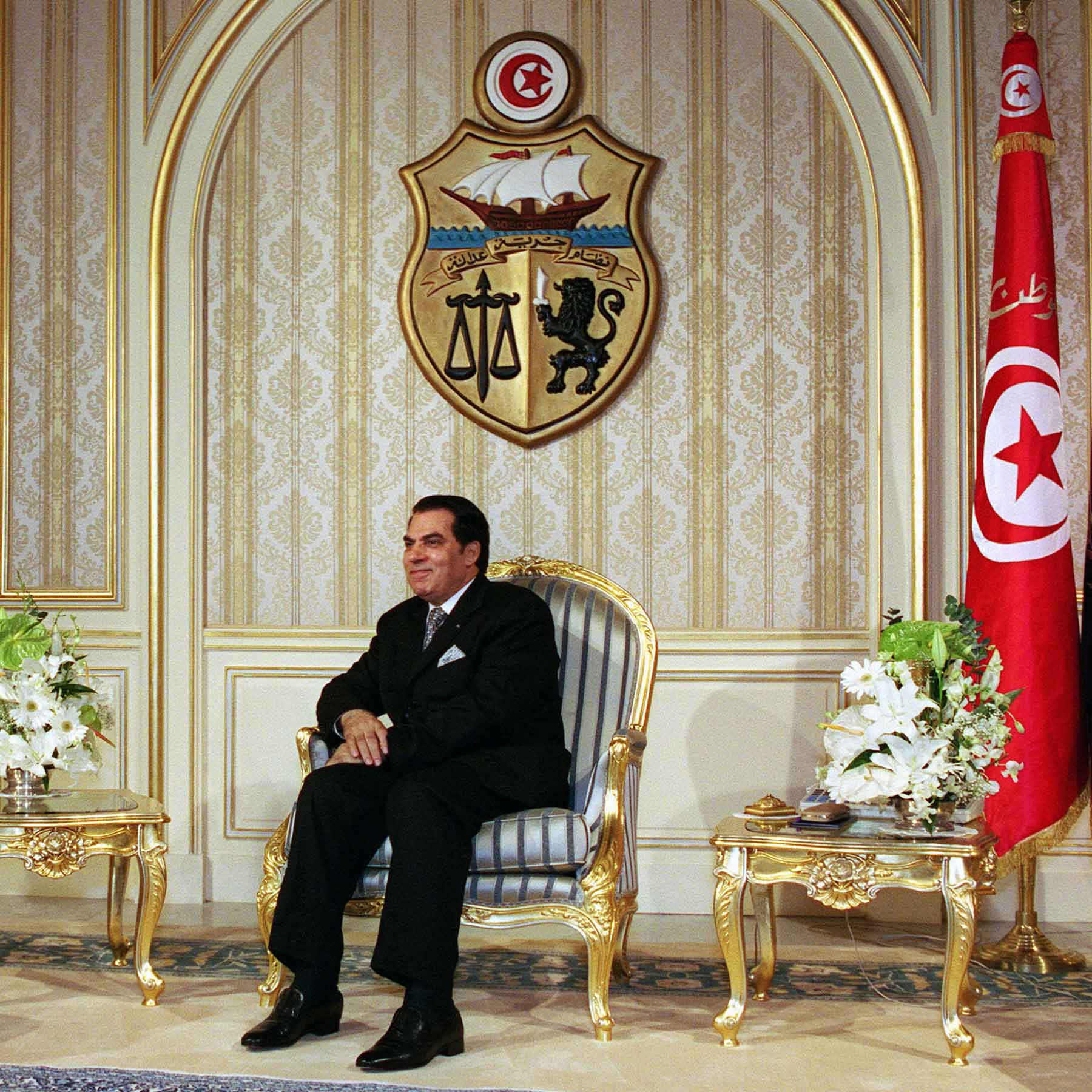TUESDAY, JANUARY 18, 2011
 Tunisian leader and former Dictator, Zine El-Abidine Ben Ali
Tunisian leader and former Dictator, Zine El-Abidine Ben Ali
An editorial in Arab News 'splains what's up with offering sanctuary to a fleeing dictator:
Kingdom’s acceptance of Ben Ali was intended to end bloodshed in Tunisia
SAUDI Arabia’s decision to grant asylum to the ousted Tunisian leader Zine El-Abidine Ben Ali has attracted considerable comment, even criticism, elsewhere, notably in the West.
In fact, like the UK, France and a number of other countries, Saudi Arabia has a long and honorable history of providing asylum to refugees and exiles. Some have been scholars such as Sheikh Ali Al-Tantawi of Syria, others political figures such as Uganda’s Idi Amin or former Pakistani Prime Minister Nawaz Sharif. There have been Muslim radicals from Egypt and members of the royal family from Yemen. There have been exiles from Palestine, from Somalia, from Iraq and Chad. Reputations have varied but all have been allowed in on one overriding condition — that they give up all political involvement during their stay in the Kingdom.
It is also true that all have been Muslims. But that is not because Saudi Arabia has a “Muslims-only” policy when granting asylum. It is simply that there have been no non-Muslim exiles seeking sanctuary in the Kingdom. Muslim exiles choose to come because the Kingdom is the home of the Two Holy Mosques in Makkah and Madinah. Non-Muslim exiles usually head elsewhere — to places such as the US, UK, France, Switzerland or Sweden.One name not mentioned in this context (hmm, I wonder why): Ugandan genocidaire Idi Amin, who evaded justice for his crimes against humanity and lived out his days in posh digs in Jeddah.
Those countries too have provided a place of exile to figures controversial in their day. The British gave asylum to the Bourbons after the French revolution, later to Karl Marx, to Napoleon III after he was overthrown in 1870, to Russian and Italian anarchists and communists before the World War I and, most recently, to Chile’s notorious General Pinochet. France, likewise, has accommodated a wide variety of political exiles, including some whom their home countries would have tried, even executed — men such as the tyrannical Jean-Badel Bokassa of the Central African Republic who made himself its emperor until he was overthrown in 1979. Or Haiti’s “Baby Doc” Duvalier who for 15 years ran a brutal regime in Haiti until in 1986 public demonstrations like those in Tunisia forced him to flee to France. By coincidence, he returned to Haiti just yesterday...
